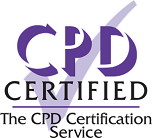Free online courses & e-learning training
Virtual College has produced a range of free online training courses in subjects such as Safeguarding Children, Health and Well-Being and Careers Advice. Here is a selection of some of the most popular free online elearning courses we offer. We're proud to offer free courses online with certificates which you can download and print for your records. Our free e-learning courses and free training courses are available to start straight away and you can learn anytime, anywhere.
Safeguarding

Female Genital Mutilation
137,000 women in England and Wales are estimated to be living with the consequences of Female Genital Mutilation, that's why we have created this free course with the Home Office.
Find out more
Awareness of Forced Marriage
This free course aims to raise awareness of forced marriage for those who have safeguarding responsibilities.
Find out more
Learning from Serious Case Reviews Levels 1 to 4
This course has been built for those who come into contact with children to understand how to respond to neglect, abuse and extra-familiar harm.
Find out more
Keep Them Safe: Protecting Children from CSE
This short online course equips parents and carers with the knowledge to protect children against sexual exploitation.
Find out more
Level 1 Child Criminal Exploitation and County Lines
The free online training course is aimed and parents, carers and professionals who work alongside children and young people.
Find out more
Understanding Young Minds
We have created this free online course with Self Harm UK to help parents talk about the issue of self-harm with their children.
Find out more
Understanding Animal Welfare in Violent Homes
This course is for frontline staff to help them understand the link between family abuse and animal abuse.
Find out moreHealthcare and Health & Safety

Are you Prepared to Save a Life?
Our Prepared to Save a Life course takes less than an hour, just five short 10 minute sections and you might be able to save someone's life!
Find out more
Awareness of Type 1 Diabetes
This free course has been created to give professionals a basic understanding of type 1 diabetes.
Find out more
Get Moving, Get Healthy
This free course covers the health benefits of physical activity, how much you should be doing and much more.
Find out moreOur Most Popular Courses
We have over 300 online accredited courses available for you, continue your learning journey with Virtual College.
Free Courses FAQs
-
What courses can I do for free online?
Virtual College has produced a range of free online training courses in subjects such as Safeguarding, Health and Well-Being and Careers Advice. We're proud to offer free courses online with certificates which you can download and print for your records. Our free e-learning courses and free training courses are available to start straight away and you can learn anytime, anywhere.
-
Are online courses worth it?
Among the many benefits of online learning, online education lets you enjoy a more flexible schedule, can quickly develop your career alongside advancing your knowledge and more and more employers are beginning to recognise the value of online courses. This is as a result of online course providers going above and beyond to ensure that an awarding body regulated and accredited their courses.
-
Can you put free courses on your CV?
Just showing you're happy to learn a new skill will look great on your CV and impress future employers. Online courses are a great way to improve your professional skills and show your initiative to progress in your chosen career.
















/safer-recruitment.jpg?mw=320&hash=A2BB5E144C89C295EC10C63680F69F39C4C3E566)








